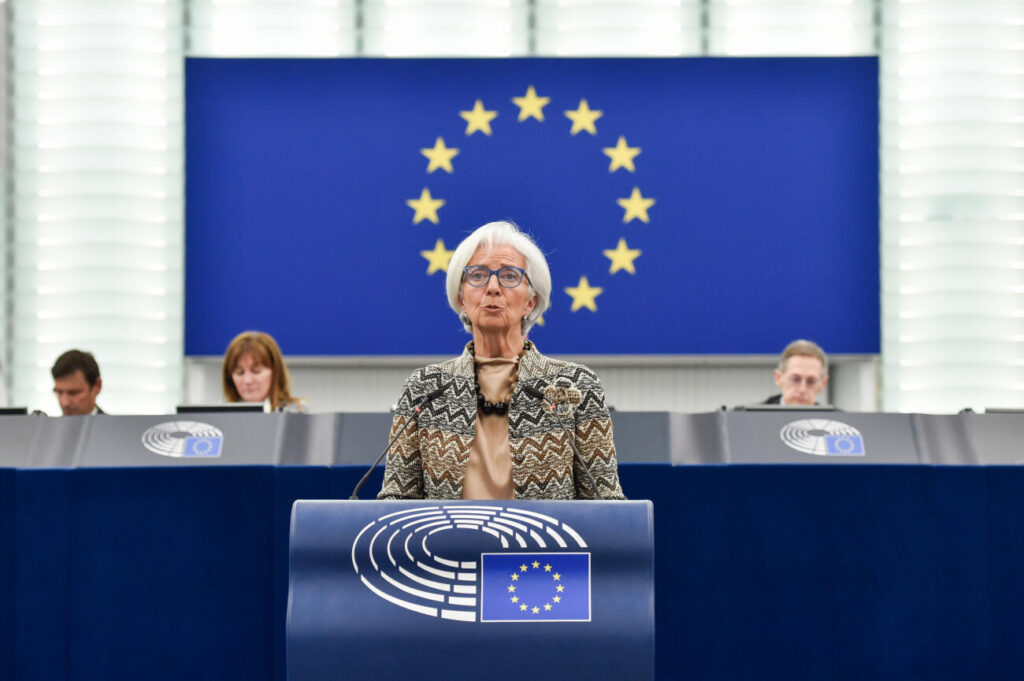All week the financial world has been waiting for meetings, decisions and additional data on the intentions of the governors of the two major central banks. Well, they have already passed and we are almost identical to Monday, with interest rates at the same level, although it is true that there is a feeling that there may be a first cut in June. In the European case, the matter has begun to become urgent, given the stagnant development of economic activity.
The main reason to consider a credit downgrade is the changes made by the European Central Bank in growth and inflation forecasts for the Eurozone. In the current context, ECB economists now expect inflation to average 2.3% in 2024 (four-tenths lower than expected in December). They also revised down their 2024 growth forecast to 0.6% (two-tenths lower), while economic activity is expected to remain moderate in the short term. Low growth, bordering on recession, and lower prices are two predictions that point to the fact that interest rate cuts will now come within a few months.
By the way, today we learned that euro area growth in the fourth quarter was 0% compared to the previous quarter and 0.4% compared to the previous year. ECB President Christine Lagarde can't play too much, because it's too easy to get out of line at the moment. It is very dangerous to want to manipulate such large economic dimensions, if you do not want to cause additional harm to the entire society. His responsibility is very great.
However, the thing that bothers me about yesterday's statement is that the ECB highlights the following: “While most measures of core inflation have continued to decline, domestic inflationary pressures remain severe, partly due to strong wage growth.” Financing conditions are tight, and previous increases in interest rates continue to reduce demand, which helps reduce inflation. There is awareness of the sensitive situation, but there is fear about the background of the issue: inflation.
But everyone wanted to know what Lagarde thought, as she said a few sentences that analysts would scrutinize to see if they could find any hidden message. At first, she was skeptical and said, as the ECB said: “We don't have enough confidence, we need more samples to determine whether inflation is moving sustainably towards the 2% target and to be able to lower interest rates.”
Instead, he made an important turn when he asserted: “We have begun discussing withdrawing our restrictive stance, but we have not discussed lowering interest rates.” This was the first step that was expected to open the door to sales. On what basis did he say that? Very easy “Market expectations appear to be converging better with those of the European Central Bank.” However, he immediately slowed down and did not want to move forward. He explained: “I will not commit to any rate of monetary normalization in the future.” In these volatile comments, he opened another door when he mentioned a date. “We will have data in April, but we will have a lot more data available in June.” Here, analysts set a date for the expected interest rate cut: June.
This assumption was refuted this morning, on French economic radio, by the President of the French Central Bank, who is one of the leaders of the European Central Bank's economic policy, François Villeroy de Galhau, and said that there is a “strong consensus in the European Central Bank on that.” The possibility of lowering interest rates this northern spring.” He added: “Spring starts from April to June 21.”
On the other side of the Atlantic, US Federal Reserve Chairman Jerome Powell has also been very active over the past two days in the House and Senate, explaining his monetary policy. In the United States, developments were less than in Europe. But from Powell's words, analysts conclude a convergence with Lagarde's words and a very similar interim target, if something important does not change: in June, US interest rates could also fall.
Easing monetary policy too early or too much “could reverse the progress we have seen in inflation and, in the latter case, require more restrictive policy, such that inflation returns to 2%,” Powell said. Doing so too late or with too little intensity “may unjustifiably impair economic activity and employment.” Therefore, “if the economy behaves as expected, the restrictive policy will begin to be phased out over the course of this year” and the cuts will be made in a way that “does not lead the economy into recession.” The famous soft landing of the economy that is always talked about.
And this is the picture we have after the most important monetary week yet. We have to wait for the meetings next month, and above all the meeting that will be held in June. In short, without specifying anything in the statements, rumors and when the trend will change are taking shape, in moments of great difficulty in the country that should be the driving force of the European Union, Germany, which carries the burden for 2023 with negative growth.
As for what concerns us more closely, the data of the reference index for the majority of mortgages in Spain remains higher than the average for March of last year, and therefore mortgagees who must renew their mortgage credit annually in this third month of the year, as of now, will have to Pay more.
Analysts always remember that the Euribor is a volatile index and is expected to rise or fall slightly every month. But it is now not expected to rise again above the 4% barrier or to suddenly fall to levels closer to 3%. This would not make sense, they say, unless there was a completely unexpected change in the overall economy. But although the explanation of those who know more about finance is acceptable, for a mortgage holder, the fact that the February twelve-month Euribor average was 3.671% and is now 3.746%, is no laughing matter, for obvious reasons.

“Infuriatingly humble social media buff. Twitter advocate. Writer. Internet nerd.”



